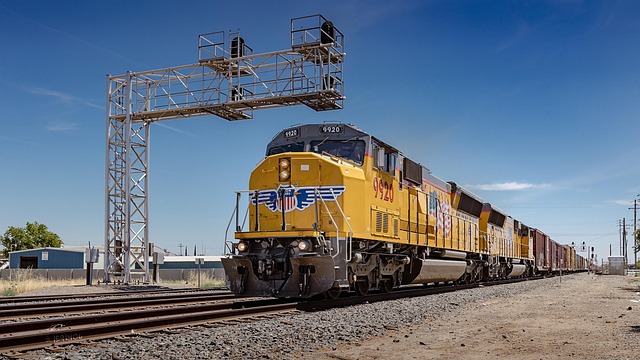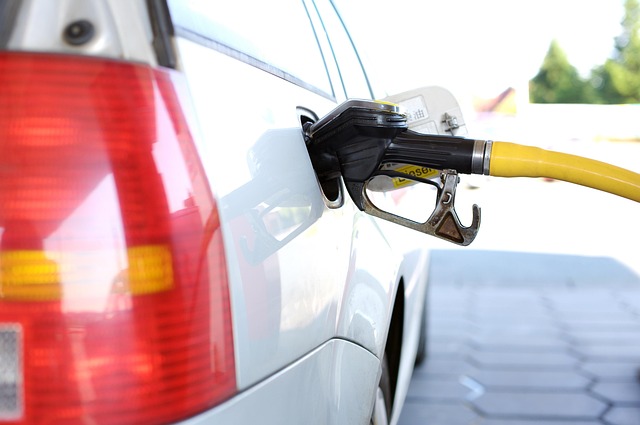Adopting Select Diesel Vehicles offers a sustainable transportation solution with superior fuel economy, durability, and reduced environmental impact. Despite the growing popularity of electric vehicles (EVs), diesel engines remain crucial, especially in North America, where diverse models cater to various needs. The transition to cleaner alternatives faces consumer skepticism but is driven by advancements, incentives, and regulatory support. Governments worldwide promote eco-friendly practices, recognizing the role of hybrid diesel cars as a sustainable middle ground in the shift towards low carbon footprint transportation.
In today’s evolving landscape, the need to replace traditional diesel vehicles is no longer a question but an imperative. This shift is driven by environmental concerns and the quest for sustainable mobility. As we explore options, electric vehicles (EVs) emerge as a compelling choice. This article delves into the understanding of this transition, benefits, challenges, government incentives, and the future of diesel-free transport, guiding readers through the process of selecting diesel vehicle replacements.
- Understanding the Need for Replacement
- Exploring Options: Electric Vehicles
- Benefits of Switching to Electric
- Challenges and Solutions in Transition
- Government Incentives for Clean Fleet
- Future of Diesel-Free Transport
Understanding the Need for Replacement

In today’s world, where environmental consciousness is on the rise, understanding the need for replacement in various sectors has become paramount. When it comes to transportation, especially within urban areas and for long-distance travel, the shift towards low carbon footprint diesel transportation is a significant step towards sustainability. This is particularly relevant when considering the vast number of vehicles on the road, many of which are running on traditional gasoline. By opting for Select Diesel Vehicles, such as energy efficient diesel minivans, we can reduce our overall impact on the environment without compromising performance or range.
For instance, best diesel cars for long distance driving offer not only superior fuel economy but also enhanced durability, making them a practical choice for both personal and commercial use. This is crucial in light of the increasing demand for efficient and eco-friendly solutions that meet our modern transportation needs. By embracing these alternatives, we can contribute to a greener future while enjoying the benefits of reliable and cost-effective mobility.
Exploring Options: Electric Vehicles

With a growing emphasis on sustainability and environmental consciousness, consumers are increasingly exploring alternative modes of transportation. One notable option gaining traction is electric vehicles (EVs), which offer a promising solution to reduce carbon emissions. However, for those who rely on diesel vehicles, it’s essential to consider the advantages and potential alternatives.
When looking to replace diesel vehicles, several modern options stand out. The market offers an array of popular diesel models in North America, catering to various preferences and needs. These include efficient fuel-saving tips for diesel cars, ensuring optimal performance while minimizing environmental impact. From compact hatchbacks to robust SUVs, best fuel economy diesel wagons provide a balance between power and mileage, making them attractive choices for eco-conscious drivers. By exploring these options, individuals can make informed decisions, contributing to a greener future without compromising on vehicle capabilities.
Benefits of Switching to Electric

Switching to electric vehicles offers numerous advantages, especially when considering the environment and long-term savings. With a growing focus on sustainability, many are now opting for electric power as an alternative to traditional diesel engines. One of the key benefits is reduced emissions; electric cars produce zero tailpipe exhaust, significantly lowering carbon footprints compared to their diesel counterparts. This shift towards electrification is also driving innovation in battery technology, leading to improved range and faster charging times.
For those still considering a diesel vehicle, especially among the top-rated diesel pickup trucks of 2023 or low emission diesel SUVs, it’s essential to weigh the benefits of electric mobility. While initial costs may be higher, electric vehicles require less maintenance overall, as they have fewer moving parts and no oil changes. This, combined with decreasing fuel costs and potential government incentives, makes electric a compelling choice for environmentally conscious buyers.
Challenges and Solutions in Transition

Transitioning to cleaner alternatives presents several challenges, especially in the automotive sector, when considering select diesel vehicles. One of the primary hurdles is overcoming consumer hesitation and skepticism about electric and hybrid models, often centered around range anxiety and charging infrastructure limitations. Additionally, the initial cost of these vehicles can be a significant deterrant for many buyers.
However, the benefits of diesel vehicles: benefits and drawbacks are becoming increasingly evident, particularly in terms of reducing low carbon footprint diesel transportation. As technology advances, manufacturers are addressing performance and efficiency concerns with improved battery ranges and faster charging times. Incentives like tax credits and rebates, coupled with growing government regulations promoting sustainable transportation, are driving the adoption of electric vehicles (EVs). Moreover, when it comes to reliability, the top 10 most reliable diesel engines offer robust performances, ensuring a smooth transition for consumers.
Government Incentives for Clean Fleet

Many governments worldwide are actively promoting the adoption of cleaner transportation options as part of their commitment to reducing carbon emissions and combating climate change. One significant step in this direction is providing incentives for businesses and individuals to transition to eco-friendly diesel car washes and quietest diesel engines available. These initiatives aim to encourage the use of vehicles that produce lower levels of harmful pollutants, contributing to cleaner air and a healthier environment.
The push towards cleaner fleets also extends to supporting industries like hill climbing, where best diesel cars for hill climbing are being recognized as a more sustainable alternative. By offering tax breaks, subsidies, and other financial benefits to businesses that opt for these greener options, governments are fostering a shift in the automotive industry. This transition not only reduces environmental impact but also stimulates economic growth by encouraging innovation and investment in cleaner technologies.
Future of Diesel-Free Transport

The future of transport is looking increasingly diesel-free as the world shifts towards more sustainable and eco-friendly mobility options. This shift is driven by a growing awareness of the environmental impact of traditional diesel vehicles, which contribute to air pollution and greenhouse gas emissions. As such, there’s a growing emphasis on alternative power sources like electric motors and hybrid technologies.
When considering the future of transport, it’s worth noting that the focus isn’t just on eliminating diesel but also on enhancing efficiency and reducing environmental impact. Hybrid diesel cars, for instance, offer a compelling middle ground by combining the fuel efficiency of diesel engines with the lower emissions and improved performance of electric motors. This hybrid approach could be key in transitioning to cleaner transport while ensuring vehicles maintain their longevity and power, as seen in top-rated diesel pickup trucks 2023 models. A comparison between hybrid diesel cars and their traditional counterparts reveals promising gains in terms of both environmental friendliness and driving experience.
In light of the growing need for more sustainable transport solutions, switching to electric vehicles (EVs) offers a promising path forward. By exploring the various benefits and addressing existing challenges, such as infrastructure development and cost considerations, the transition to EV adoption can be seamlessly navigated. Government incentives play a crucial role in encouraging businesses and individuals to make the switch, fostering a cleaner and greener future for all. As we move towards a diesel-free transport landscape, continuing innovation and public support will be essential to ensure a smooth and successful transformation. Choosing electric vehicles is not just a trend but a necessary step toward a more sustainable world.



